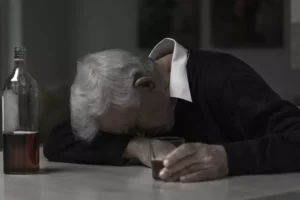Guilt And Shame In Recovery: Top 10 Tips to Overcome Them

The https://ecosoberhouse.com/ theory behind Art Therapy for Coping with Shame and Guilt is that the creative process allows for a non-verbal expression of emotions that may be too difficult or painful to express through words. By creating works of art, individuals can explore their inner selves and express repressed emotions in a safe and non-judgmental environment. Through this process, they can learn to identify negative beliefs about themselves that contribute to their feelings of shame or guilt.
- Fostering self-compassion and reducing self-criticism are key elements in addressing shame and guilt during addiction recovery.
- In the case of the individuals with whom I worked, their lives sometimes led to multiple incarcerations.
- Sharing one’s experiences and challenges with honesty creates a space for empathy and understanding, reducing the weight of shame and guilt that often thrives in secrecy.
- Such idealistic thinking actually makes a person more susceptible to relapse (e.g., “everything will be better when XYZ happens”).
What is the role of shame in addiction recovery?

Your prefrontal cortex and posterior insula work together to create the experience of shame. Since those two parts of your brain are part of the limbic system, the experience of shame is connected to the autonomic nervous system (involuntary physiological processes). ” It’s a fair question to ask, but it also makes it more likely that if you ask either of those questions, you’ve probably never struggled with alcohol or drug abuse. It’s important to note that while shame can be guilt and shame in recovery damaging, it also has an evolutionary purpose. Feeling ashamed of immoral or unethical behavior helps us conform to social norms and maintain social order. However, this evolutionary mechanism can become problematic when it leads individuals to feel ashamed for seeking help or vulnerability.

Strategies to Overcome Shame and Guilt in Addiction Recovery
Addiction often arises from an attempt to cope with shame, guilt or marijuana addiction emotional pain. By developing greater awareness around these emotions through mindfulness practice, individuals are able to break free from these habitual patterns in a safe and controlled environment. Through mindfulness meditation, individuals can develop greater self-awareness and compassion towards themselves. They learn to embrace their feelings and experiences without judgment, while also developing the capacity to release negative thought patterns which may be contributing to their feelings of shame and guilt. Don’t miss out on the potential benefits of ACT therapy for addressing shame and guilt during addiction recovery. By learning how to observe your thoughts without judgment and focusing on your core values instead of past mistakes, you could experience a greater sense of emotional resilience and wellbeing.
How Do Shame and Guilt Affect Recovery?
If you or a loved one are struggling with alcohol or substance use, mental stability, or other forms of personal challenges, effective help is available. Cornerstone Healing Center in Scottsdale, Arizona, offers a one-of-a-kind approach to addiction, recovery, and growth. However, if guilt interferes with your ability to live a happy and healthy recovery, it puts you at immense risk for relapse, and it’s important to address it. Pervasive feelings of shame can keep you from achieving full recovery, but only if you let them.
- It may thwart the motivation or progress being made during recovery as you will continue to feel like a “bad person” who needs to escape or deserves to be hidden away.
- The relationship between shame and addiction is a spiraling, race-to-the-bottom type of interaction.
- One effective approach is emotional awareness, where individuals identify and name their feelings of guilt or shame, locating them within their bodies.
- At Discovery Institute, we recognize that guilt and shame are significant hurdles in the recovery process.
Through self-forgiveness and therapeutic support, individuals can transform negative experiences into a source of strength—ultimately enhancing their recovery journey. Connecting with empathetic individuals through group therapy can alleviate feelings of isolation often linked with shame. Celebrating small victories in recovery reinforces a positive outlook and nurtures self-worth. Being able to forgive removes the shame and feeling that you can move on.

Pink Cloud Syndrome: Understanding Early Recovery Euphoria
- These emotions will naturally emerge as you progress through therapy, exploring the behaviors you may now regret.
- It may not make things right or just, but it means you are willing to let mistakes that happen, happen and you don’t want to feel responsible for the things you can’t control.
- It involves exhibiting empathy, kindness, and compassion towards oneself despite past mistakes or shortcomings.
- Guilt and shame becomes a vicious cycle that goes somethinglike this.
- For those seeking support in managing feelings of shame or guilt during addiction recovery, Acceptance and Commitment Therapy (ACT) may be worth exploring further.
It’s important to acknowledge that alcohol and substance use disorders are health conditions that need treatment. Family-based interventions and family counseling not only benefit individuals in recovery but also contribute to the healing and growth of the entire family unit. One impactful therapeutic approach involves fostering self-compassion and reducing self-criticism. By encouraging individuals to treat themselves with kindness and understanding, therapists help to create a foundation of self-acceptance and forgiveness. This shift in perspective enables individuals to let go of the burdens of shame and guilt, allowing them to embrace their journey towards recovery with openness and vulnerability. To overcome these inhibitors and progress towards recovery, it’s essential to acknowledge and address the underlying sources of shame and guilt.